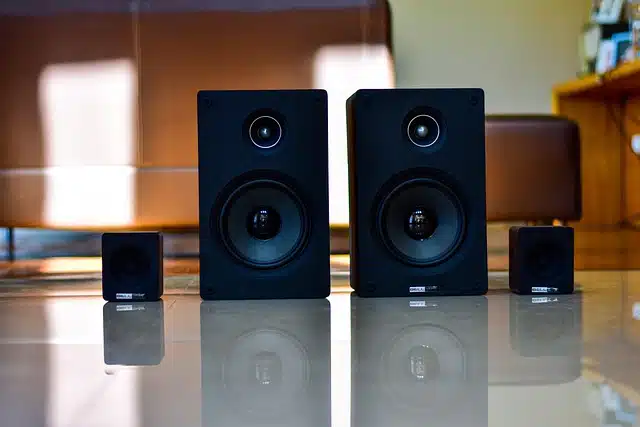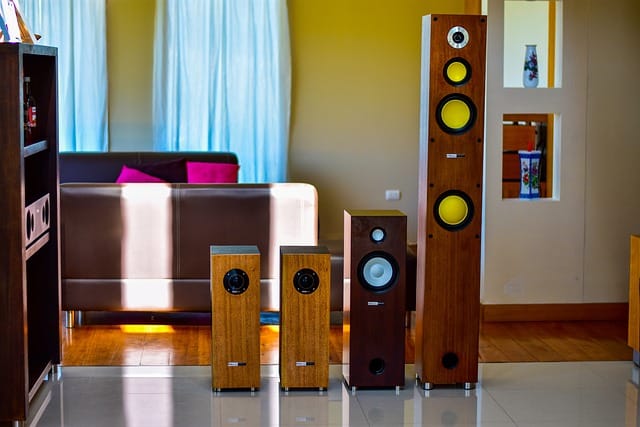
Speaker can be used as a synonym for loudspeaker or loudspeaker.
The first meaning of speaker that the Royal Spanish Academy ( RAE ) mentions in its dictionary refers to that or that which speaks : that is, that speaks or that emits sounds. It is common for the notion to be joined with other terms to form adjectives such as Spanish-speaking (who has Spanish as their mother tongue), Franco-speaking (the individual who speaks French), etc.
In several American countries , speaker is a noun that refers to the electroacoustic device capable of converting electric current into sound . Speaker, in this framework, is synonymous with speaker or loudspeaker .
Speakers as sound players
Speakers, therefore, are devices used to reproduce sound . In a first stage, they transform electrical waves into mechanical energy; Then, said mechanical energy is converted into acoustic waves.
It is important to remember that sound waves are disturbances of air pressure that, in the ear, become mechanical waves that the brain processes. With a microphone , sound can be converted into electrical signals that are transmitted via radio waves or cables.
A magnetic speaker uses an electric current that carries the sound encoded or modulated by a microphone . This current powers an electromagnet and creates a magnetic field, producing a force. As the electromagnet is attached to a membrane, the force moves both components and the membrane generates fluctuations in the air that we perceive as sounds.
Simplifying, we can say that a microphone converts sound into an electrical signal and that the speaker is responsible for decoding that electrical signal to emit sound.

The speakers decode the electrical signal and emit sound.
How to choose them
Music and cinema occupy a very important place in our cultures, and consequently interest in the technologies of televisions, stereos and speakers is not uncommon. To enjoy a good movie or our favorite songs, having good quality devices makes an undeniable difference. However, as with any commercial product , the price can become an obstacle for the tightest pockets.
Choosing a good set of speakers is not easy, since the decision must combine certain technical variables with some that are subjective: the quality of the parts, the technologies used for sound reproduction and the number of speakers are practically unquestionable issues; But the warmth of the sound and the predominance of bass or treble can have a different impact on each individual, given the specific characteristics of their hearing, which is why it is not enough to study them on paper but rather they must be experienced to know if the device is suitable. for one.
Speaker options
In recent decades, the number of speakers per game has not increased to very high, but considerable limits: from monaural radios and televisions (with a single speaker) to Atmos systems with several hundred speakers, it is certainly not so It is as easy to understand a catalog today as it was in the 80s. But the most important thing is to understand that not all technologies are necessary for all consumers, and that, therefore, not being able to buy a product does not always entail a disadvantage.
Atmos technology allows sounds to be played at different altitudes around the user, providing more precise sound information regarding the position of objects on the screen. For example, it becomes easier to understand that a bird is singing at the top of a tree and that the river flows at our feet. The most affordable systems have five speakers at seat level and another four that are placed near the ceiling or even hung from it. There are more options, increasingly more expensive, until reaching the 400 or more that a movie theater can have.
